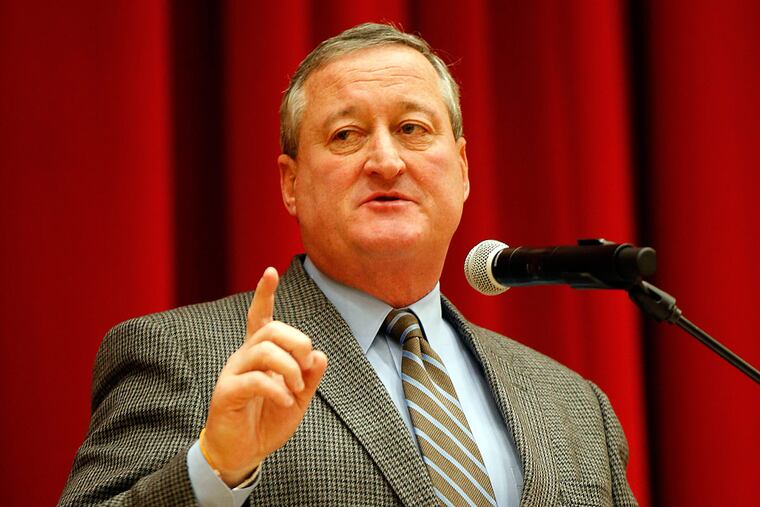Inquirer editorial: Soda tax doesn't mean Philly is flush with cash
With so much attention on the sugary and non-sugary beverage tax that City Council finally passed Thursday following weeks of debate and a game-saving, last-minute reduction in the levy, little was said about Mayor Kenney's overall $4.2 billion budget being a whopping $192 million bigger than the current spending plan.

With so much attention on the sugary and non-sugary beverage tax that City Council finally passed Thursday following weeks of debate and a game-saving, last-minute reduction in the levy, little was said about Mayor Kenney's overall $4.2 billion budget being a whopping $192 million bigger than the current spending plan.
The 1.5-cents-per-ounce beverage tax will generate about $91 million a year initially, until soda consumption predictably goes down. But that money is designated for specific expenditures, including a program to increase the number of "high-quality" prekindergarten slots in the city. Revenue for the rest of the budget is expected from currently collected taxes and fees.
One can only wonder whether Kenney's big budget would have been smaller had he implemented the "zero-based" budgeting he promised when he ran for mayor. Requiring department heads to justify their requested expenditures was supposed to generate significant savings. In fact, Kenney said it would yield "$80 million to reinvest in schools or universal pre-K," plus money to reduce the city's unfunded pension liability. But the last word on zero-based budgeting was that it has been delayed until 2018.
The budget Council passed was apparently built the old-fashioned way, with enough backroom deals and horse-trading to make some people's heads spin. Ironically, the energized give and take between the mayor and Council was refreshing compared with the frequently frustrating lack of interaction under his predecessor, Michael Nutter, who often seemed to look on the body that birthed him with disdain. But there needs to be some middle ground between mutual back-patting and perpetual warfare.
Kenney's deal-making became apparent when it was revealed that a good portion of the $386 million that the beverage tax is projected to generate over five years will go to various Council members' pet projects. Most of the money, though, will be spent on pre-K expansion, to establish community schools, and to upgrade recreation centers, parks, and libraries. About $80 million is dedicated to other worthwhile purposes, including disability settlements and reducing homelessness.
Now that the spending is in the budget, it's important to make sure the funds are well spent. That can only happen if, in contrast to the behind-the-scenes budget negotiations, the public is fully informed and involved. Fairness in spending decisions can only be assured if the public knows which prekindergarten facilities, rec centers, library branches, and proposed community schools are going to get funding - and why.
One of the first steps the city should take toward full disclosure is to make public a study it conducted using a $500,000 William Penn Foundation grant that details the condition of city-owned facilities. It shouldn't be hard to pair that document with an analysis of how much each facility is used to determine which should be upgraded and which should be retired.
Kenney was elected mayor on a promise to be a good fiscal steward. To do that, he must make some difficult decisions about what the city can and cannot afford. Rallying support for a beverage tax was hard but achievable because the goal was unquestionably good. The public wants its new mayor to be just as fervent about saving money. Maybe then some taxes can be cut.